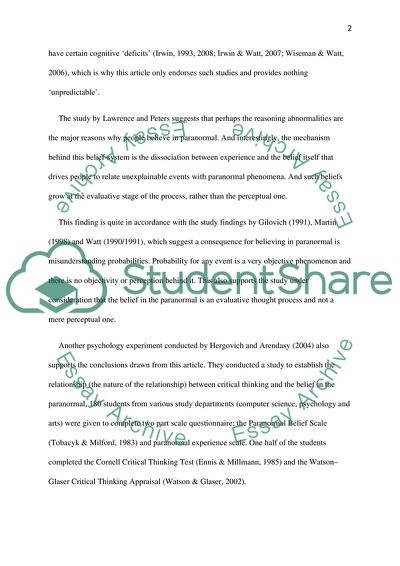Cite this document
(“Critical review of the 2004 Lawrence & Peters article Reasoning in Essay”, n.d.)
Critical review of the 2004 Lawrence & Peters article Reasoning in Essay. Retrieved from https://studentshare.org/psychology/1587338-critical-review-of-the-2004-lawrence-peters-article-reasoning-in-believers-in-the-paranormal
Critical review of the 2004 Lawrence & Peters article Reasoning in Essay. Retrieved from https://studentshare.org/psychology/1587338-critical-review-of-the-2004-lawrence-peters-article-reasoning-in-believers-in-the-paranormal
(Critical Review of the 2004 Lawrence & Peters Article Reasoning in Essay)
Critical Review of the 2004 Lawrence & Peters Article Reasoning in Essay. https://studentshare.org/psychology/1587338-critical-review-of-the-2004-lawrence-peters-article-reasoning-in-believers-in-the-paranormal.
Critical Review of the 2004 Lawrence & Peters Article Reasoning in Essay. https://studentshare.org/psychology/1587338-critical-review-of-the-2004-lawrence-peters-article-reasoning-in-believers-in-the-paranormal.
“Critical Review of the 2004 Lawrence & Peters Article Reasoning in Essay”, n.d. https://studentshare.org/psychology/1587338-critical-review-of-the-2004-lawrence-peters-article-reasoning-in-believers-in-the-paranormal.


